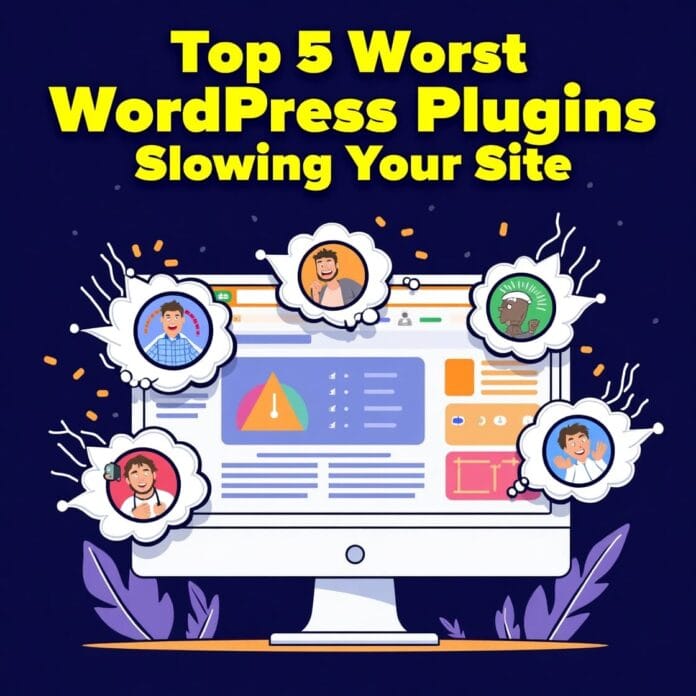If you feel that your website is taking more time to load than before, then it is possible that some WordPress plugins slowing it down.
Plugins bring new features to your site, but if there are too many or heavy plugins then the website starts running slowly.
But which plugins are slowing it down? And what can you do?
In this blog you will learn all these things:
- How to find out which plugin is slowing down your site
- How to check which plugin is using more database queries or resources
- How to make your site fast
- And how to choose good, lightweight plugins that do not slow down the site
Fast website means more happy users and good Google ranking.
Want to stay ahead with AI-driven change footer in WordPress insights and stay updated with the latest trends? Subscribe for daily search insights at wpguidepro.com to improve your WordPress strategy
Let’s start!
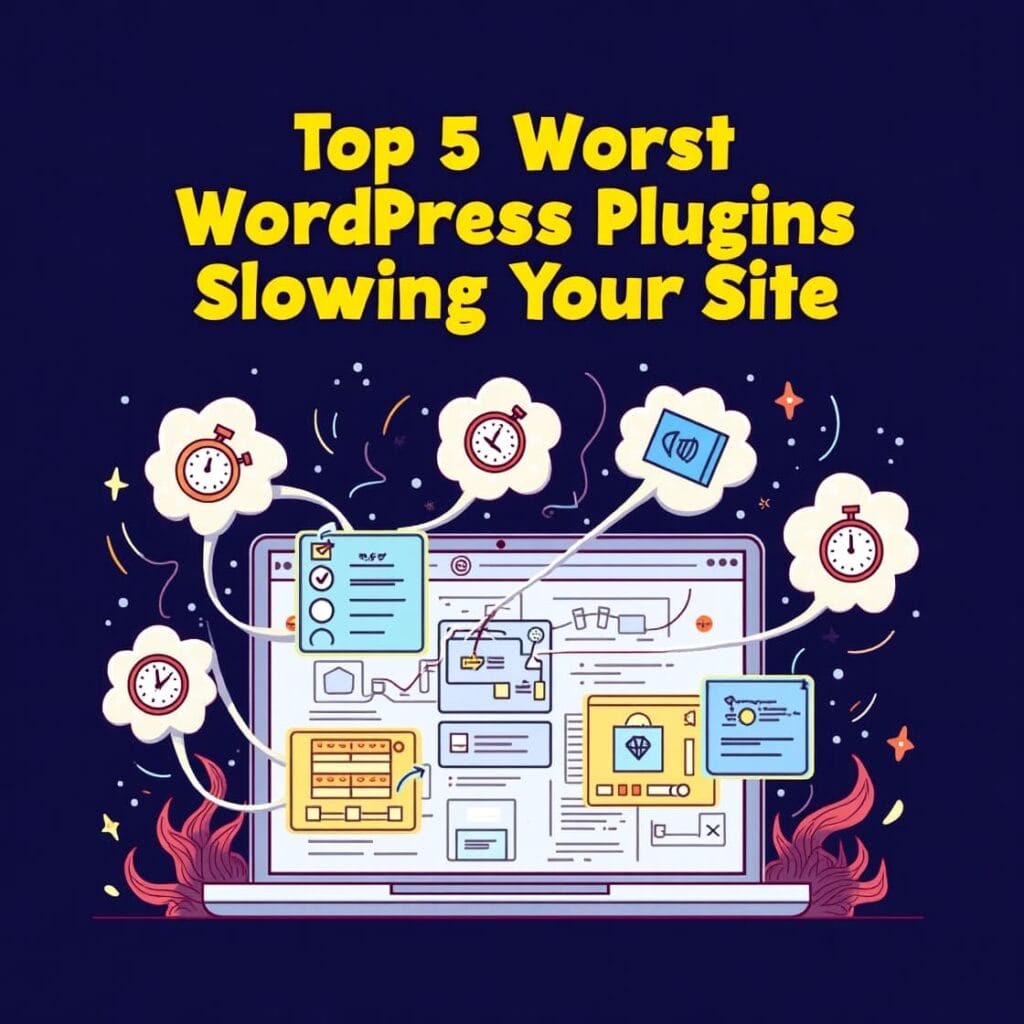
Table of Contents
Why Do Some Plugins Slow Down Your WordPress Website?
Not every WordPress plugin is the same. Some plugins are lightweight and fast, while others slow down your website. This is because:
- Heavy Database Queries
Some wordpress plugins create complex or excessive database queries that take too long to process, resulting in slower page loads. For example, poorly coded plugins for forums, e-commerce, or analytics often fall into this trap.
- Bloated Code or Excessive Features
A plugin with unnecessary features, excessive lines of code, or outdated practices can bloat your site. While the plugin itself may function correctly, its inefficiency becomes a burden.
- External Resource Requests
WordPress Plugins that load stylesheets, JavaScript files, or images from external servers without optimization can demand more load time. Popular examples include social media share buttons and sliders.
- Resource Conflicts
If two plugins rely on overlapping resources, they may conflict and slow down your website. Worse still, they may break features on your site altogether.
- Lack of Regular Updates
Outdated plugins often fall behind in terms of speed, security, and compatibility. Regularly updated plugins use newer, well-optimized development protocols.
Understanding these root causes will help you diagnose why your WordPress setup isn’t as snappy as it could be.
Finding Plugins That Make Slow Database Queries
Database queries occur every time a page loads, especially for dynamic sites. If you suspect a wordpress plugin is causing slow queries, here’s how to identify it:
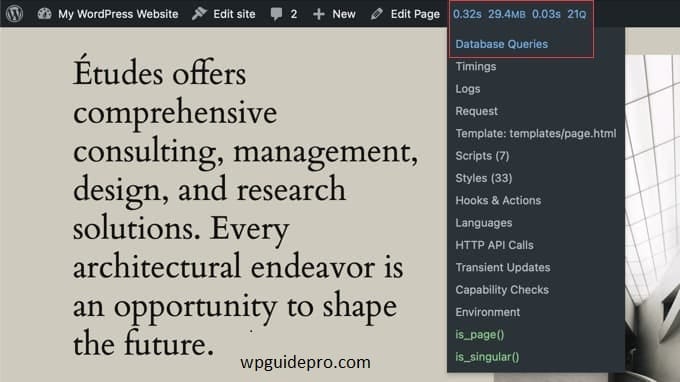
- Use Query Monitor
Query Monitor is a free WordPress plugin that helps you analyze queries made to your database. Install it, and it will show you which queries take the longest to execute and which plugins are responsible.
- Look for Slow-Query Logs
If you have shared or managed hosting, you can request slow-query logs from your hosting provider. These logs identify database queries that take longer than expected.
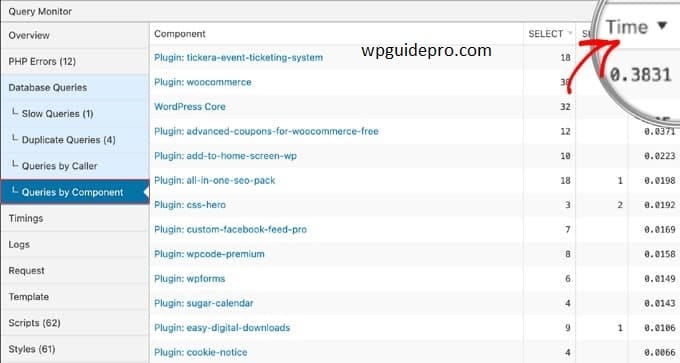
- Examine Plugins That Use Your Database Often
Common offenders often include plugins for SEO data, forums (like bbPress), or directories. Disable them temporarily to see if it improves your site speed.
By targeting database-heavy wordpress plugins, you tackle the hidden culprits behind sluggish performance.
Finding Plugins That Load Slow Resources
Some plugins load JavaScript, CSS, or large images directly from external sources, slowing your site. Here’s how to track these down:
- Use GTmetrix or Pingdom
Both tools analyze your site’s performance and list all resources loaded. Look for external calls (e.g., loading fonts, scripts, or third-party services). Identify if specific plugins are responsible.
- Tools Like Chrome DevTools
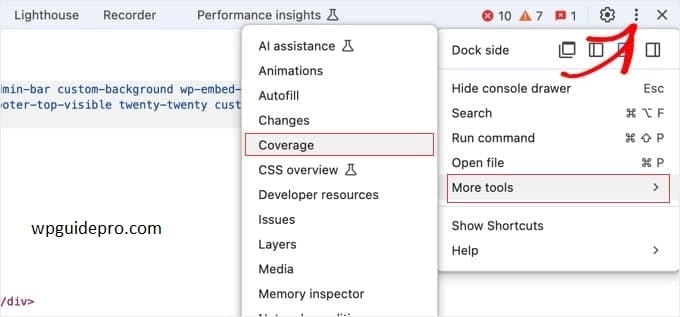
Open Chrome DevTools (F12), go to the “Network” tab, and reload your site. Filter by “CSS” or “JS” to locate slow-loading files. If the file path references a plugin folder, it’s likely the culprit.
- Disable Plugins One By One
Temporarily disable suspicious plugins and re-run site speed tests to confirm if they were impacting performance. By targeting resource-heavy plugins, you can reclaim valuable load time.
Manually Testing the Speed of Each WordPress Plugin

If automated insights don’t give you clear answers, you can isolate and manually test each plugin’s impact:
- Create a Baseline Speed Test
Use a tool like Google PageSpeed Insights or GTmetrix to grab your current site speed score before making any changes.
- Disable Plugins One at a Time
Go to the WordPress dashboard, deactivate one plugin, and run another speed test. Repeat until you find noticeable changes.
- Test on a Staging Site
If you’re worried about disrupting your live site, clone your site to a staging environment. Many web hosts offer one-click cloning options.
While time-intensive, manual testing removes any doubt about the plugin responsible.
Bonus: Improving Performance on Mobile Using Google Lighthouse
These days, mobile responsiveness is non-negotiable. Google Lighthouse (integrated into Chrome DevTools) helps analyze your mobile site performance. Here’s how to optimize plugins for mobile:
- Run a Lighthouse Audit
Open your website in Chrome, press F12 to open DevTools, switch to the “Lighthouse” tab, and generate a report. This will highlight performance bottlenecks, including those created by plugins.
- Eliminate Render-Blocking Resources
Many plugins load non-critical CSS or JavaScript upfront. Use plugins like WP Rocket or Autoptimize to defer these resources and improve mobile performance.
- Focus on Lazy Loading
If your plugins incorporate images or videos, make sure they support lazy-loading to reduce the immediate payload on mobile devices. Acting on Lighthouse suggestions ensures your site stays fast and efficient across all devices.
Using a Professional Site Speed Optimization Service Optimizing
Your site can be complex if you’re managing several plugins and aren’t tech-savvy. That’s why investing in professional help can be worthwhile. Platform-agnostic services like WP Buffs or FixRunner specialize in site optimization.
These services go beyond identifying slow plugins. They can configure caching, implement CDNs (Content Delivery Networks), and even customize lightweight replacements for your bloated WordPress plugins. Sometimes, leaving it to the pros can save you time and headaches.
Choosing Better WordPress Plugins
Prevention is always better than a cure. Choosing high-performance plugins ensures you avoid future slowdowns. Here’s what to look for:
- Check Reviews and Ratings
Plugins with high star ratings and plenty of positive reviews are more likely to be efficient and reliable. Look for feedback specifically addressing speed and performance.
- Go for Lightweight Plugins
Many plugins are “all-in-one” solutions filled with features you may not need. Choose minimalistic, single-task plugins when possible.
- Regular Updates
Always select plugins that are actively maintained by developers. Consistent updates show the developer’s dedication to performance and compatibility.
Popular lightweight plugins include Yoast SEO, Ninja Forms, and Smush for image optimization. Vetting plugins upfront eliminates performance issues before they start.
Make Your Site Run Faster Today
No WordPress site is immune to slowdowns, but identifying and eliminating resource-heavy plugins can make a world of difference. From using Query Monitor to manually testing performance, the strategies we’ve shared will empower you to regain control of your site’s speed.
If you’re still struggling with performance issues, it may be time to explore optimization services or reconsider your plugin choices. Remember, a faster website not only ranks better but also keeps visitors happy and engaged.
Now is the time to optimize. Start speed testing your WordPress plugins today and see the difference!
Recommended Guide:
Remove spam links : https://wpguidepro.com/remove-spam-links-save-your-wp-site/
WordPress core insights : https://wpguidepro.com/wordpress-core-ultimate-guide/
Fix jQuery errors : https://wpguidepro.com/fix-jquery-is-not-defined-in-wordpress/
Reduce HTTP requests : https://wpguidepro.com/http-requests-in-wordpress/
Fix admin dashboard CSS : https://wpguidepro.com/fix-broken-css-in-wordpress-admin-dashboard/

